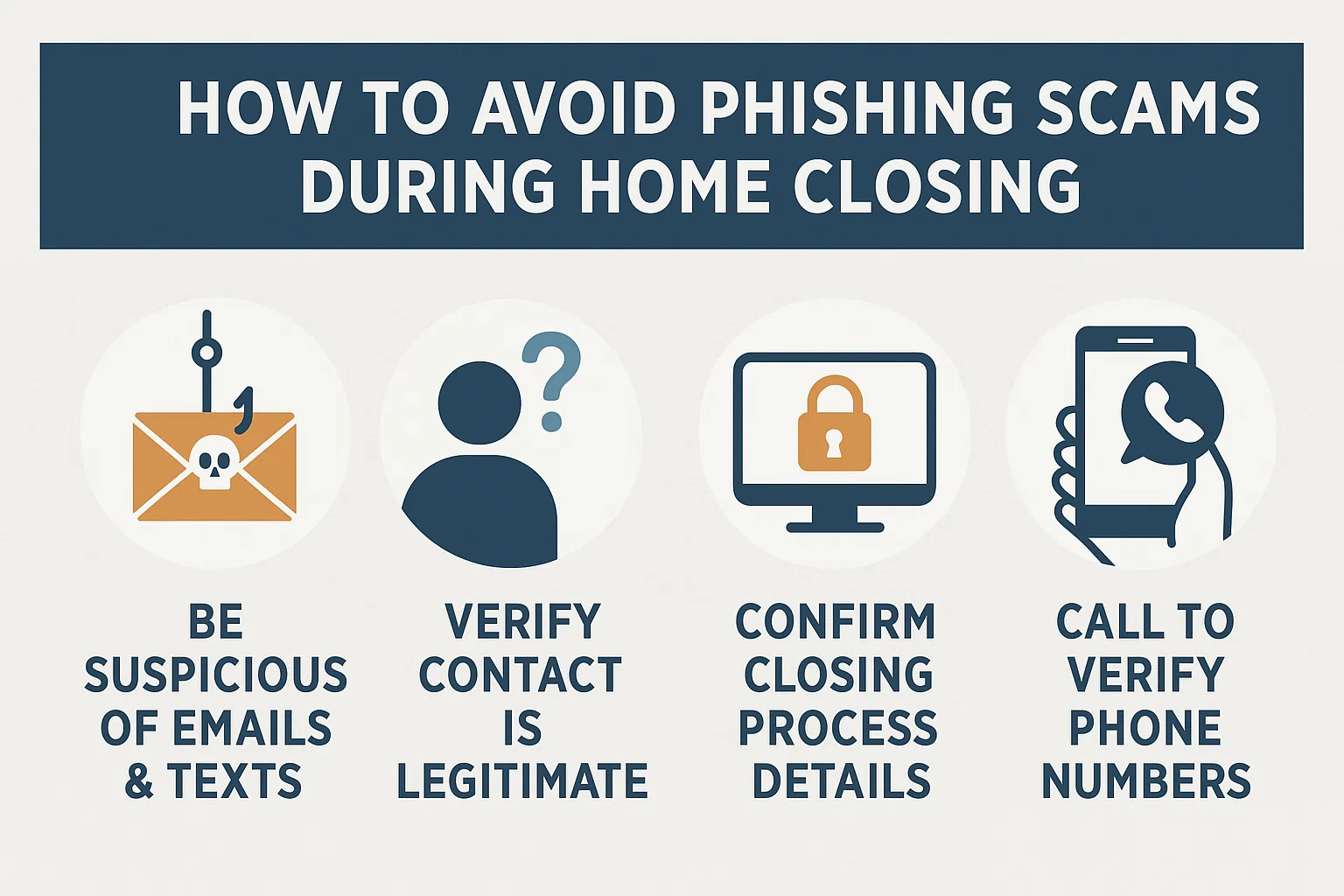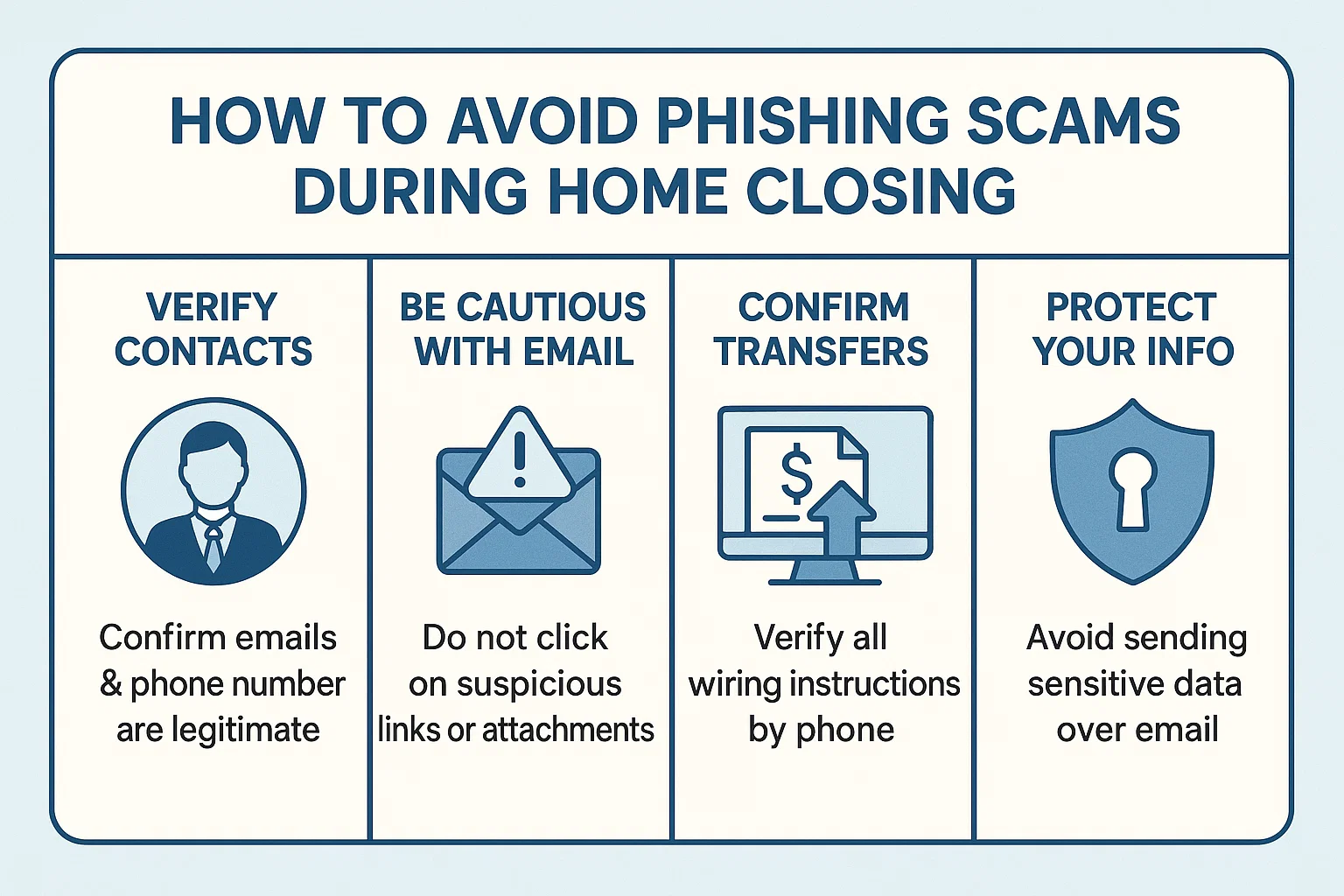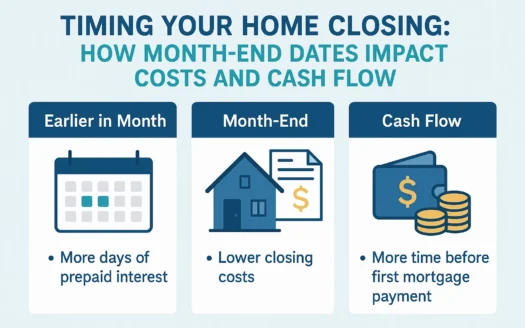How to Avoid Phishing Scams During Home Closing

How to Avoid Phishing Scams During Home Closing
You’ve finally found your dream home, signed the closing documents, and are eagerly awaiting the keys to your new property. Then, an email arrives—seemingly from your loan officer—with urgent wire transfer instructions. Without hesitation, you initiate the payment… only to discover later that the request was fraudulent. Unfortunately, this scenario is all too common.
Understanding Phishing Threats
Phishing occurs when cybercriminals use deceptive emails, texts, or websites to steal sensitive personal data. Sharing details like your Social Security number, bank account information, or passwords can make you a victim. In 2025 alone, manipulated email scams in real estate transactions caused an estimated $19 million in losses, according to federal reports.
Red Flags to Watch For
- Unexpected Wire Requests: Legitimate mortgage providers will never send unsolicited wire instructions via email. Always verify such requests by contacting the sender directly using a trusted phone number.
- Suspicious Attachments or Links: Malware is often hidden in email attachments or hyperlinks. Clicking them could compromise your device’s security.
- Urgent or Unusual Language: Scammers pressure victims to act quickly. Be cautious of emails demanding immediate action or using unfamiliar terminology.
Protect Yourself During Closing
Knowledge is your best defense. Familiarize yourself with the closing process to spot inconsistencies in communication. Key steps include:
- Confirming payment instructions in person or via verified phone calls before transferring funds.
- Avoiding sharing financial details through email or unsecured channels.
- Installing reputable antivirus software to detect potential threats.
Stay Vigilant
Remember: Email accounts—even those of trusted professionals—can be hacked. If you receive a suspicious message, do not respond. Instead, contact the sender through a verified method to confirm its legitimacy. Staying alert and proactive is the best way to safeguard your investment and personal information.


